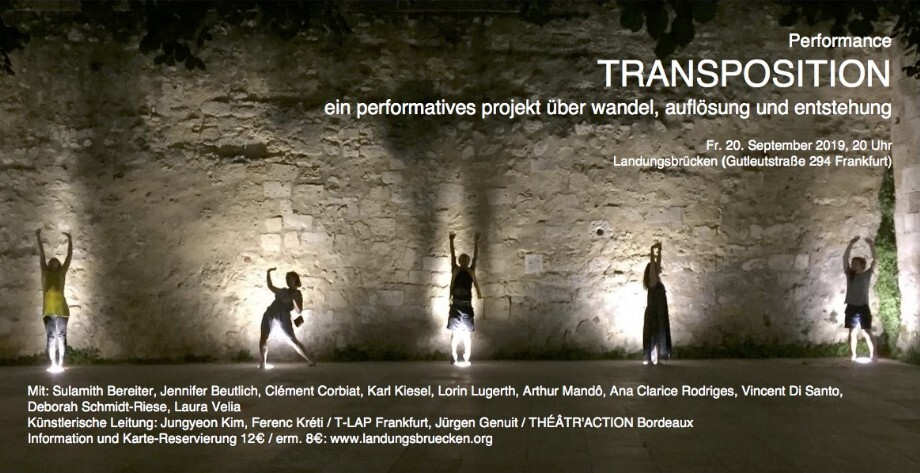2019 transposition

TRANSPOSITION
– concept description (English)
... to transfer, to transform, to translate,
to transport, to construct, to deconstruction, to reconstruct ...
When a player leaves the comfort zone and
enters the empty space, he/she is challenged to let go of the
familiar forms and structures from the previous context and to allow
a direct encounter here and now with himself/herself and the space. In the project we will
cross the threshold into the unknown, as we work with movement,
dance, sound and language born from the present moment. Varying
settings such as alone, in pairs and in groups shall lead to
intensive personal and artistic experiences. The journey will be
further inspired by the philosophies of BAUHAUS and LABAN.
The artistic concept of
transposition plays with the principles of construction and
deconstruction. It is about changing realities which appear through
translating, transforming and transferring immaterial and material
forms within the same space and across different spaces. The embodied
vocabularies such as movement and language will be met by
architectural thinking, letting the performers be creators both of
themselves and of their environment in a constant process of change.
The change takes place as the result of transposition. In this sense
change itself is not the goal of the action, but the process of
material and immaterial translation of the own person in space – in
the context of encounter-as-dialogue. This person-space
relationship is at the center of the performance:
How do I transpose
myself in the encounter with the space (as well as with other
persons), or how do I transpose the space itself? In the first case,
the performers allow as the starting point that the space determines
their action. In the second case, the space is made "coherent"
by active change and evaluation. The play takes place in the arena
between these poles.
These encounters will take
place in public spaces as well as in the studio. In terms of content,
the subject of transposition is dealt via formal approaches, and
thereby forms of expressions are developed through movement, text
components from the performers and stage design elements.
Transposition in the
fields of language and music is a change to facilitate understanding
or harmony. In the context of our performance work, the fact that the
French and German participants come together in a common setting
without the reciprocal language skills becomes a challenge and leads
to surprising non-linguistic translations and attempts for
communication. Creative misunderstandings and multiple
interpretations will be our fruitful ground on which the performers
connect to and collaborate with each other.